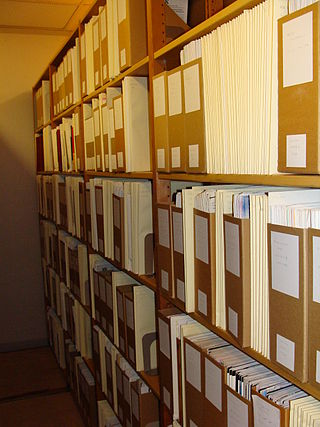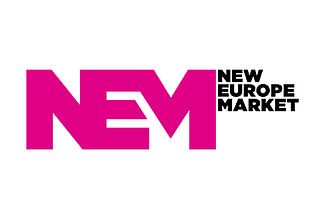The Worldwide Developers Conference (WWDC) is an information technology conference held annually by Apple Inc. The conference is usually held at Apple Park in California. The event is usually used to showcase new software and technologies in the macOS, iOS, iPadOS, watchOS, tvOS, and visionOS families as well as other Apple software; new hardware products are sometimes announced as well. WWDC is also an event hosted for third-party software developers that work on apps for iPhones, iPads, Macs, and other Apple devices. Attendees can participate in hands-on labs with Apple engineers and attend in-depth sessions covering a wide variety of topics.

Digitality is used to mean the condition of living in a digital culture, derived from Nicholas Negroponte's book Being Digital in analogy with modernity and post-modernity.

An academic conference or scientific conference is an event for researchers to present and discuss their scholarly work. Together with academic or scientific journals and preprint archives, conferences provide an important channel for exchange of information between researchers. Further benefits of participating in academic conferences include learning effects in terms of presentation skills and "academic habitus", receiving feedback from peers for one's own research, the possibility to engage in informal communication with peers about work opportunities and collaborations, and getting an overview of current research in one or more disciplines.

An unconference is a participant-driven meeting. The term "unconference" has been applied, or self-applied, to a wide range of gatherings that try to avoid hierarchical aspects of a conventional conference, such as sponsored presentations and top-down organization.

Helen Wingard Hill was an American artist, filmmaker, writer, teacher, and social activist. When her final film, The Florestine Collection, was released in 2011, curators and critics praised her work and legacy, describing her, for example, as "one of the most well-regarded experimental animators of her generation".

Intelligent Systems for Molecular Biology (ISMB) is an annual academic conference on the subjects of bioinformatics and computational biology organised by the International Society for Computational Biology (ISCB). The principal focus of the conference is on the development and application of advanced computational methods for biological problems. The conference has been held every year since 1993 and has grown to become one of the largest and most prestigious meetings in these fields, hosting over 2,000 delegates in 2004. From the first meeting, ISMB has been held in locations worldwide; since 2007, meetings have been located in Europe and North America in alternating years. Since 2004, European meetings have been held jointly with the European Conference on Computational Biology (ECCB).
An orphan film photos is a motion picture work that has been abandoned by its owner or copyright holder. The term can also sometimes refer to any film that has suffered neglect.

Wikimania is the Wikimedia movement's annual conference, organized by volunteers and hosted by the Wikimedia Foundation. Topics of presentations and discussions include Wikimedia projects such as Wikipedia, other wikis, open-source software, free knowledge and free content, and social and technical aspects related to these topics.
The Association of Moving Image Archivists (AMIA) is a 501(c)(3) not-for-profit organization established to advance the field of moving image archiving by fostering cooperation among individuals and organizations concerned with the acquisition, description, preservation, exhibition and use of moving image materials.
Pietra Brettkelly is a New Zealand filmmaker, known for her documentaries. She is a documentary filmmaker submitted three times for Oscar consideration, a member of The Academy of Motion Pictures Arts and Sciences, and was recently named an Arts Laureate of New Zealand. Her films have premiered in five of the world's top six film festivals – Sundance, Toronto, Venice, Berlin and Tribeca Film Festivals – and have garnered many awards. She is known for her independent, risk-taking style, which has taken her to many different countries. She approaches her subjects' lives with a "quiet" demeanor and "non-judgmental" attitude, allowing her to capture and document real stories.

The International Academic Forum (IAFOR) is an NGO research organization based in Japan.

The Transgender Archives at the University of Victoria is the "largest transgender archive in the world".

New Europe Market (NEM) is an annual marketing conference, market and screenings event held in Dubrovnik, and run by the Croatian company Mediavision Ltd. The focal idea behind the event is the creation of a platform where media, telecommunications and marketing professionals can share their knowledge and experience during the conference and networking events. The conference is addressed to FTAs, Pay-TV channels, cable operators, satellite operators, IPTV, production and distribution companies, media and marketing agencies and specialists. NEM focuses on the CEE region, but the event attendees come from all over the world.
Lisa Marr is a musician, songwriter, filmmaker, photographer, and educator from Vernon, British Columbia, Canada, currently based in Los Angeles, California, and Vancouver, British Columbia, Canada. She has performed as a solo artist and as a member of the Evaporators, the Indecisives, the Bombshells, Cub, Buck, The Beards, The Lisa Marr Experiment, The Here + Now, and Soda & His Million Piece Band. She is sometimes known as Miss Marr in her solo work. She has been credited as the originator of a subgenre of music known as cuddlecore.

The Media History Digital Library (MHDL) is a non-profit, open access digital archive founded by David Pierce and directed by Eric Hoyt that compiles books, magazines, and other print materials related to the histories of film, broadcasting, and recorded sound and makes these materials accessible online for free. The MHDL both digitizes physical materials and acquires digital copies from outside libraries, archives, collectors, and other collaborators. Most of the material in its more than 2.5 million pages is in the public domain and therefore free for all to use with no restrictions.

Camera! The Digest of the Motion Picture Industry was an American film industry trade paper from 1918 to 1924. Camera! is notable as "the film industry’s first weekly trade paper to consistently publish from Los Angeles." The publication also took strong stances against "what it perceived as detrimental forces in the industry, notably, the rampant 'fake' schools of acting, and the newly formed Motion Picture Producers and Distributors of America and its first president Will Hays."
Colin Ross (1885-1945) was a renowned and prolific Austrian travel writer and film-maker. He was a "household name" between the two world wars. Between 1910 and 1945, he published 35 books, six films, and around 1,200 articles.

Moving Trans History Forward is a series of interdisciplinary, international, and intergenerational conferences held in Victoria, British Columbia, Canada, at the University of Victoria, hosted by the Chair in Transgender Studies. The conferences discuss trans history and activism, and are both academic and open to the public. The conferences also explore new trans research and the issues that impact trans, non-binary, Two-spirit, and other gender nonconforming (GNC) people.
On Film, Inc was an American industrial film production company in the 1950-60s known for its innovative and award-winning creative productions and advertisements and its roster of talented filmmakers and documentarians.











